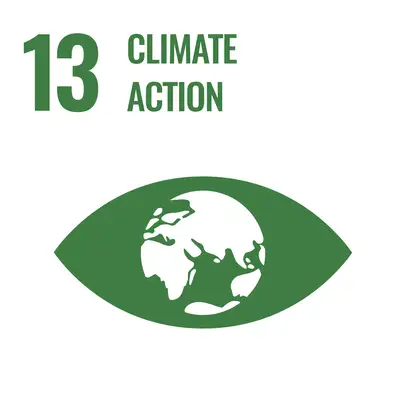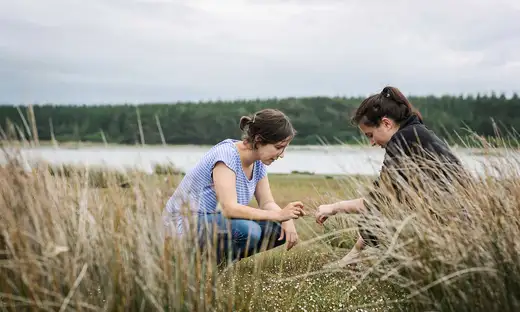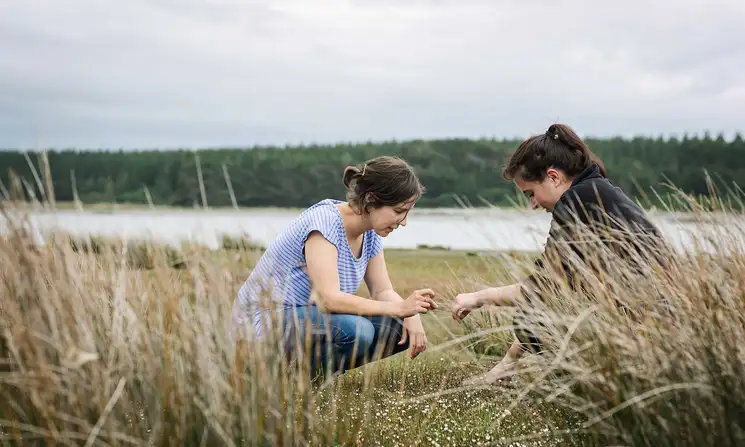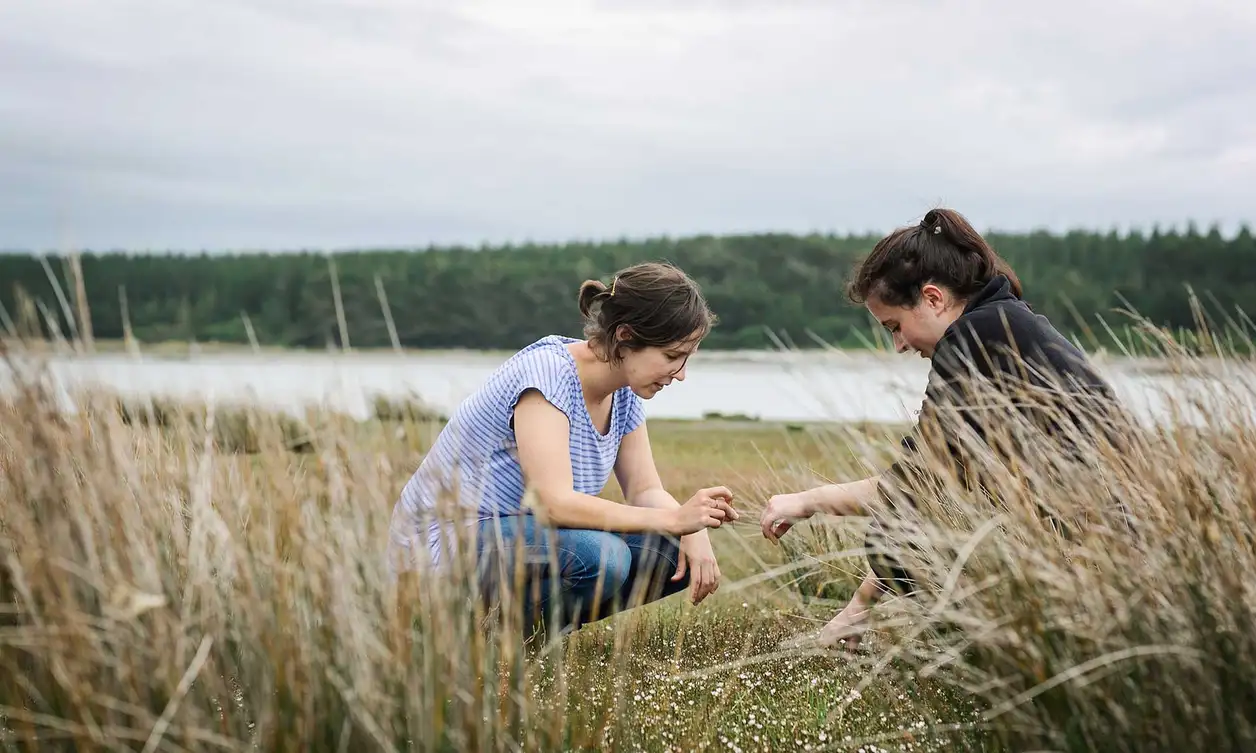On this page
- Increasing renewable energy use
- International collaborations
- Community collaboration for climate change solutions
- Massey professors honoured for Sustainability and Environment contributions
- Climate action publications
- Love to Ride challenge
- Climate Action Week
- Climate Action major for Master of SDGs
- Art films illuminate climate change
- Citizen science and weather forecasting
- Fulbright awards fuel climate change research
- Lead expert on Tourism Panel on Climate Change
- Related content

Increasing renewable energy use
Massey University has numerous initiatives to increase its renewable energy usage – adopting heat pump technology to replace less efficient heat sources, upgrading to more efficient lighting systems, enhancing building management systems and partnering with Solar Bay to host a large solar power system on campus.
In 2023, 61.0% of the university's energy consumption was from low-carbon sources – comprising 33.2 gigawatt-hours of a total energy consumption of 54.5 gigawatt-hours. Total energy includes natural gas and electricity used by our main campuses, our aviation school, several off-campus building spaces leased by the university, the Massey Research farms and some student accommodation.
Massey's low-carbon energy use in 2023 improved by 3.1 percentage points compared to 2022. In 2022, 57.9% of the university’s energy use was from low-carbon sources – comprising 31.7 gigawatt-hours of a total energy consumption of 54.8 gigawatt-hours.
International collaborations
More than 6 out of every 10, 62%, of Massey University’s 268 SDG13 Climate action publications between 2019 and 2023 resulted from international collaborations (Scopus database extracted using SciVal in October 2024).
The publications had over 3,500 citations, with a signification emphasis on research on carbon removal technologies, climate governance and the effects of agriculture on climate change.
Community collaboration for climate change solutions
Climate change collaboration with iwi
Massey's Professor Glavovic is working with a group of trustees who are the mana whenua to a piece of land on the Waitara River in New Plymouth. The land faces flood risk, coastal erosion and intensified storms due to climate change. This work also involves the New Plymouth District Council.
The university, Māori communities and local government are working to develop an adaptation plan. The goal is to prevent people from needing to leave their communities and to protect their urupā and rare taonga that are at risk, as well as people’s wellbeing and livelihoods.
Tangimoana and Pūtiki climate response plans
Massey is working with the Horizons, Manawatū and Whanganui District Councils to develop climate response plans for the Tangimoana and Pūtiki communities, where grave flood risks exist due to the impacts of climate change. This project, running from 2022 to 2024, is in collaboration with local Māori communities, including Rangitāne and other iwi and hapū. The action plans will inform the councils’ future decisions, in consultation with affected communities, about priorities, approaches and funding.
Whanganui flood strategy
Horizons Regional Council engaged Massey experts to develop a flood risk and resilience in a changing climate strategy. The focus is on Anzac Parade – the main road alongside the river in Whanganui.
Global climate change assessment
The university is also actively involved in Working Group II of the Intergovernmental Panel on Climate Change. This group is assessing the impacts of climate change, looking at ecosystems, biodiversity, and human communities at global and regional levels. As part of this, Professor Bruce Glavovic was a key contributor to the Intergovernmental Panel on Climate Change’s Sixth Assessment Report on Impacts, Adaptation and Vulnerability, which was published in 2022.
Professor Bruce Glavovic is also the lead author for the Intergovernmental Science Policy Platform on Biodiversity and Ecosystem Services nexus report. This addresses the interconnected issues of biodiversity, water, climate, food, and health as part of a project spanning from 2022 to 2024.
Massey professors honoured for Sustainability and Environment contributions
Massey University Professor Emeritus Ralph Sims was appointed Companion of the New Zealand Order of Merit (NZOM) for his services to sustainable energy research. Furthermore, Professor Huhana Smith, Ngāti Tukorehe, Te Mateawa, Ngāti Rangitāwhia, Ngāti Kapumanawawhiti ki Kuku, has been named a Member of the NZOM for her services to the environment.
Climate action publications
In 2023, several articles published by Massey academics in The Conversation focused on climate change.
Topics included strategic considerations for construction in the face of more extreme weather and suggestions for enhancing the effectiveness of the Intergovernmental Panel on Climate Change.
Love to Ride challenge
In February 2023, 75 Massey staff members completed almost 1,000 rides for Love to Ride’s 2023 Aotearoa Bike Challenge. Additionally, a new bike and scooter storage area for students and staff was opened on the Wellington campus. This was made possible with support from the Wellington City Council.
Climate Action Week
As part of Massey’s commitment to being net carbon zero by 2030, the university held an online Climate Action Week to encourage Massey students to be active partners in the journey.
The activities comprised short videos, speakers, panel discussions, korero, creative ideas and competitions.
Climate Action major for Master of SDGs
A new Climate Action specialisation has been developed for Massey’s Master of Sustainable Development Goals, with the first enrolments from 2023. In 2024, 14 students are majoring in Climate Action.
Find out more about our Master of Sustainable Development Goals
Art films illuminate climate change
A collection of short art films addressing climate change and greenhouse gas reductions featured on the Whairepo Lagoon water screen in Wellington Harbour during Matariki, the Māori New Year.
Massey’s Toi Rauwhārangi College of Creative Arts and Wellington production company Storybox led the event.
Citizen science and weather forecasting
Massey’s Joint Centre for Disaster Research examines how 'citizen science' can contribute to weather forecasting. This work forms part of a 10-year research project with the World Meteorological Organization.
Fulbright awards fuel climate change research
The university received the Fulbright New Zealand Scholarship Awards to investigate critical aspects of climate change. The research focuses on:
- sustainable development and resilience in coastal communities
- the impact of climate change on women’s reproductive decisions.
Lead expert on Tourism Panel on Climate Change
Dr Apisalome Movono was appointed Lead Expert on the Tourism Panel on Climate Change, launched at the United Nations Climate Change Conference.
This panel brings together more than 60 leading experts from over 30 countries and focuses on climate-resilient global tourism with the aim of achieving zero emissions by 2050.








